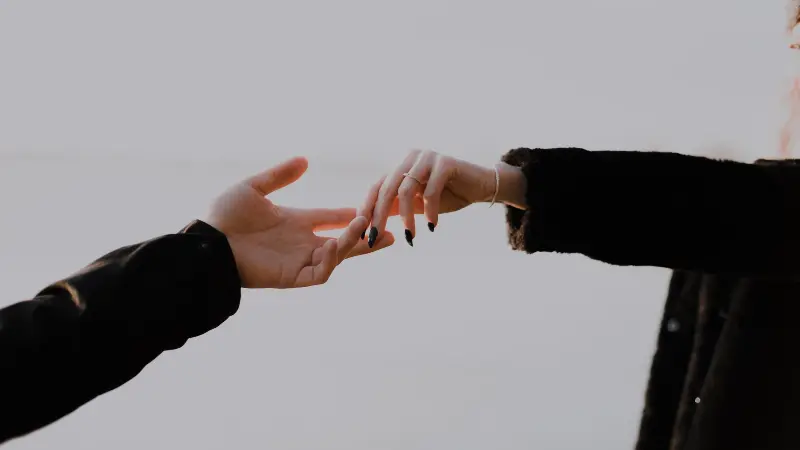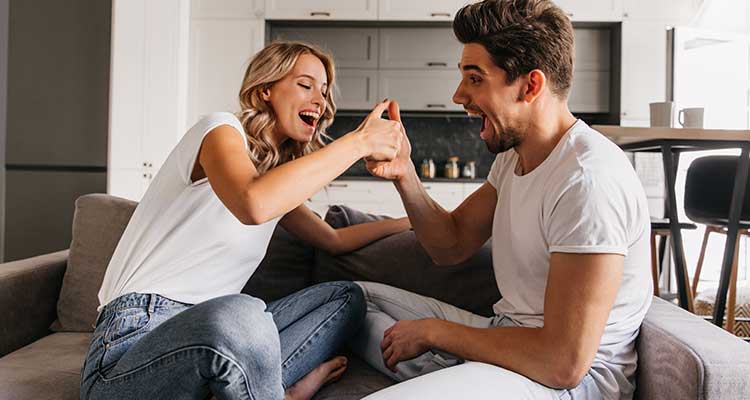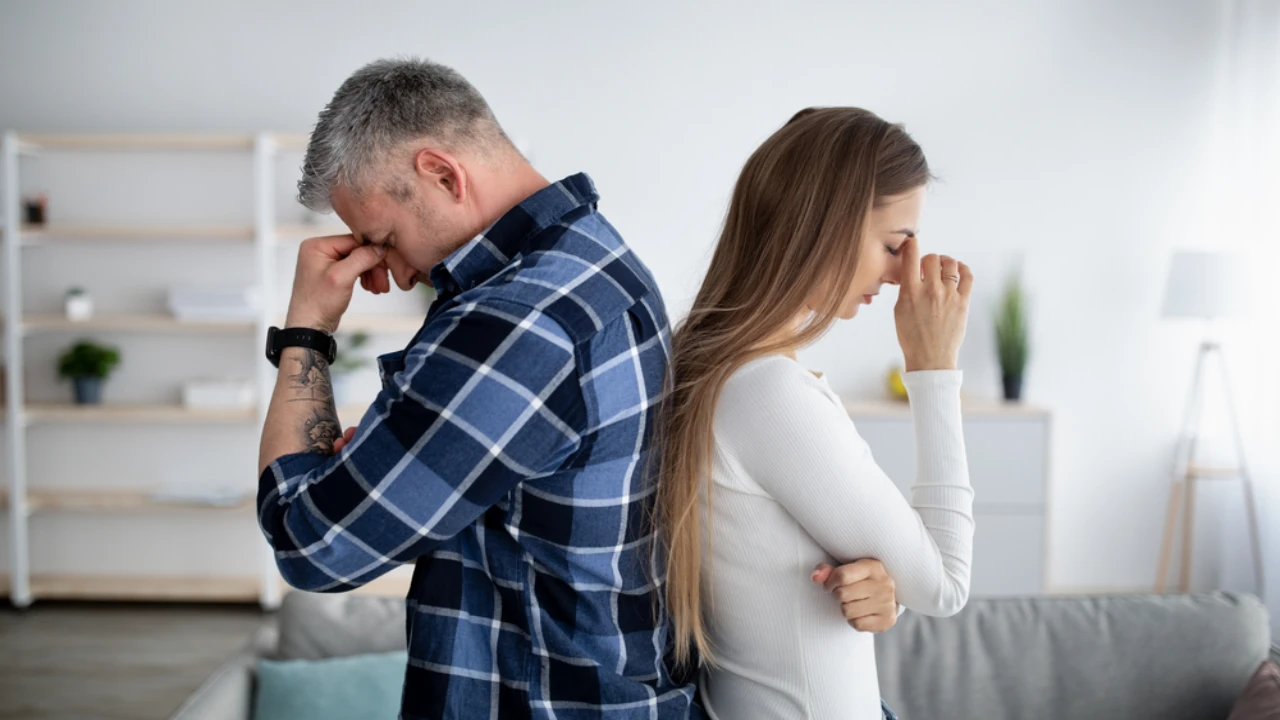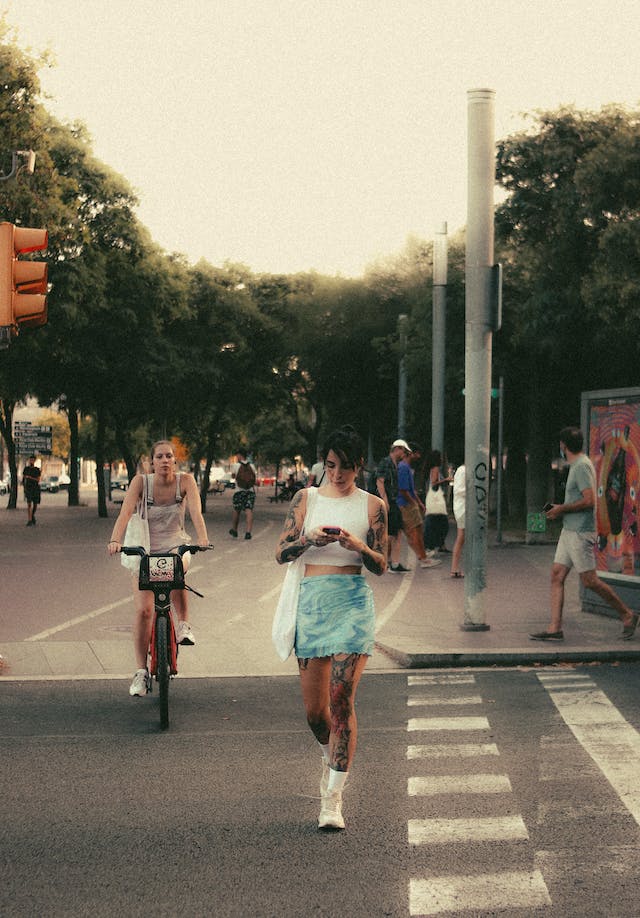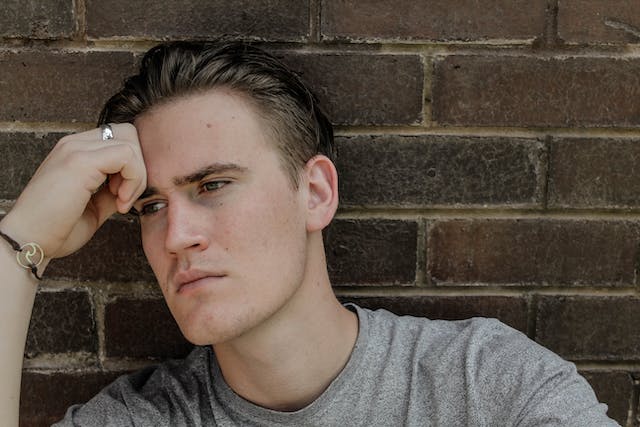Happiness
Episode 68: From Othering to Belonging
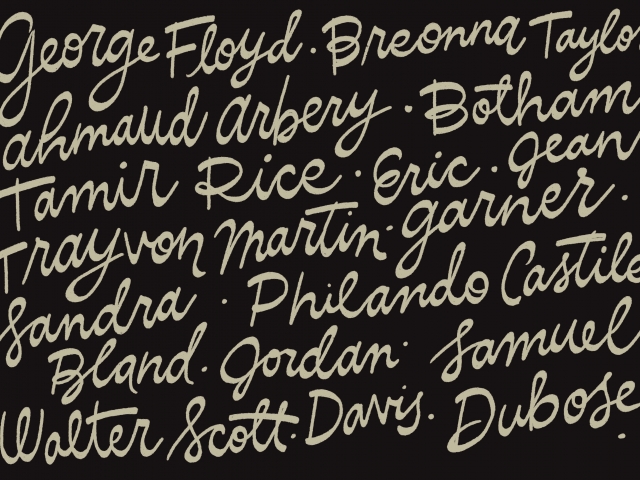
THERESA SCOTT It’s not just about let’s take a knee, let’s be silent for eight minutes and 46 seconds for George Floyd. It goes way beyond that.
KAI KOERBER I’m African-American and this is something that could happen to me. It could happen to me tomorrow, could happen to me next week. I want to create a future that allows me to not only be safe in this society, but allows everyone else who looks like me to be safe.
JENNIFER KEITT The reality of police violence and institutional racism have been happening in this country for hundreds of years. Black folk have been having conversations in this country, the United States of America for hundreds of years. It’s really difficult to think to function straight to not having this low pressure of always being on. That concerns me because racism is taking its toll. The toxic toll of stress of racism is taking its toll.
ADRIAN MICHAEL GREEN I think we are tired and frustrated and angry. And more than anything, we know that this isn’t new and this won’t be the end. It will be, it has been, a continuation of hatred and bigotry and oppression and racism that people of color, black bodies in particular, in this moment, have suffered through.
JUSTIN MICHAEL WILLIAMS I think we have to be really careful when it comes to our well-being, because the way that you show up in this time can and should be completely authentic and in alignment with your values, and with your self care as top priority. Especially for black, brown, indigenous people of color, because we don’t want this movement to create more harm within our communities and within ourselves.
DACHER KELTNER Those were the voices of Theresa Scott, Adrien Michael Green, Jennifer Keitt, Kai Koerber, and Justin Michael Williams –– they’ve all been guests on The Science of Happiness. For today’s show, we asked them how they are finding meaning during these extraordinary times of the Black Lives Matter protests, and supporting their well-being, and the people they care about.
JUSTIN MICHAEL WILLIAMS I realized that the way that my nervous system was jacked up, I mean, I’m a meditation teacher. Like, so the fact that I was that completely overwhelmed, I can only imagine where other people were. And I then reminded myself, no, no, no, no. You have permission to rest. You have permission to recover. Your people and your ancestors have been going through this for generations and centuries. And if you don’t care for yourself, you’re internalizing the same oppression that you’re fighting against.
JENNIFER KEITT First and foremost I think that I find well-being in my tribe, having a very familial family and friends support system. Being able to on an ongoing basis go back to the people that love and that love me. That is the strength of my well being that is the source of my well being.
ADRIAN MICHAEL GREEN I think what’s more important now than ever is for all people to gather in affinity groups. So folks of color, it’s normal and necessary to go and seek refuge and respite and say, “Hey, you know, I’m tired. I’m angry and frustrated. I’m afraid. I’m sad. I’m terrified.”
THERESA SCOTT I continue to work, you know, at my eight to five job. I’m trying to eat, right. So I’m trying to keep that in balance. I’m trying to exercise and trying to make sure I take care of myself.
ADRIAN MICHAEL GREEN I think now even more than ever, people can make art or tap into art. And that could be reading and writing and listening and singing and responding, because we know art is therapy.
THERESA SCOTT And also reaching out to family and friends via Zoom or on the phone. Just trying to make sure that I’m okay by making sure that everyone is OK. Because when I know everyone else is OK, I’m doing good myself, you know.
ADRIAN MICHAEL GREEN Part of well-being for folks who are dealing with trauma right now in this moment is to unplug, to literally get off of the social grid because we cannot control all of the ongoing repetitive videos.
JUSTIN MICHAEL WILLIAMS I did three full days taking in no news, hiked in nature, and brought myself back to joy. And, you know, one thing that I’m going to say about this movement, especially with black and brown communities, part of our revolution is experiencing joy in the face of this oppression and dismantling white supremacy. And the system, like our ability to care for ourselves and experience joy, is what our generation can do differently than was done before.
DACHER KELTNER This is Dacher Keltner, and we are in the midst of nationwide protests that are giving voice to the hurt and the outrage that so many of us are experiencing right now into the murders of unarmed black people. One of the things that I’ve learned in the science of happiness is that you can’t have happiness at the individual level within a family, within a neighborhood, within a community, if you don’t have justice, if you don’t have fairness and we are learning a lot about how racial and class disparities harm the soul of a nation. And what we’ve been thinking about it, The Science of Happiness is how do we leverage the kinds of skills that we cover in our show, how to bounce back from adversity, handle trauma, find meaning, find community in the face of enormous divisions and also the importance of really listening. And so this week what we thought we would do is bring back co-host Allison Briscoe-Smith, who is a professor of psychology and director of the Diversity Equity and Inclusion Group at the Wright Institute. And many of you probably recognized her voice because she’s been a guest host a number of times so we’re very delighted and honored to hand over the mike to Allison today.
ALLISON BRISCOE-SMITH Thanks so much, Dacher, for having me here. I’m really excited to have this opportunity, especially in this context, to talk to our guest today, who is john powell. John powell is an expert in civil rights and civil liberties and issues relating to race, poverty in the law. He’s a professor of African-American studies and ethnic studies at UC Berkeley, as well as the director of Berkeley’s Othering and Belonging Institute, which works to identify and eliminate barriers to an inclusive, just and sustainable society in order to create transformative change. Welcome, john powell.
john powell Thanks, Allison. Good to see you again.
ALLISON BRISCOE-SMITH So I wanted to kind of start with context that Dacher set for us, where in a particular time here, the combination of being in the midst of a global pandemic and this current, yet another wave of an uprising and with protests and bearing witness to racialized violence. This is not a new phenomena. Perhaps it’s a little bit different in this context of Coronavirus. But all of what we’re kind of bearing witness to is how much racism and oppression are really impacting black communities and other communities of color in general. So I wanted to ask you to think a little bit about the connection between what’s kind of going on in terms of how we’re sheltering-in-place, incidences of police brutality, what we’re seeing, what’s going on with all of those issues? And how are you making sense about where we are in the world today?
john powell So I think there are many different things happening at once. And also, I think that within those different things, we are in these inflection points where we can either move very rapidly, very deeply into more entrenched othering, more entrenched racism, more entrenched posturing to suggest, as some people don’t really belong, that black lives don’t matter, that maybe gay lives don’t matter, that maybe immigrant lives don’t matter. In the context of that, what we’re seeing is a challenge to those, not just statements, but those assumptions. So black lives do matter. But how do they matter? And within that, you’re seeing a push not just from the black community, I think the black community in Minneapolis, and across the country, and really across the world, this is just standing up and demanding change. And that’s actually very beautiful and hopeful in some ways. In addition to that, though, you’re seeing people who normally don’t get involved. You’re seeing a lot of white people who are not racial justice or social justice advocates. You’re seeing generals in the military. You’re seeing ambassadors. You’re seeing the prime minister of Canada talk about anti-black racism, which I think is important to name it, right? It’s not just racism. It’s type black racism. Is the US brand of racism. But you’re seeing cracks in the wall of oppression and injustice that we’ve never seen before. And our job in part is to actually shine a light on those cracks. It cracks into holes and then eventually it takes the wall down.
ALLISON BRISCOE-SMITH You speak about inflection points, which almost to me speaks to, we have a choice here as to which way this can go. And I hear you really speaking with a lot of hope and positivity. What do you think might be available to us in this moment?
john powell Well, Allison, I’m not a professional organizer, but I’m hoping I would say there’s more than a little bit of hope. But even more important than hope, there’s a huge chance to engage. Not just that a personal but in a personal, collective, institutional make, Los Angeles just voting to take between 100 and 150 million dollars out of the budget of the police and give it to communities of color. That’s never happened before. And the University of Minnesota, immediately stopped a large contract with the police in Minnesota. The hope that we have the most, I would say, is the deep, profound, sustained engagement. We got to hold those two truths. Right. These two truths. Yes, we’re grieving. We’re in pain. We’re shocked. We’re disgusted. We’re tired. But at the same time, we’re seeing this outpouring when I come home there are young people out with signs, Black Lives Matter. Their cars are going by honking. And then the other thing is interesting is that this is happening in the middle of a global pandemic. The world has already changed. The world has already changed. And then we add this on top of that change. This morning, I got up and I start calling my veteran friends saying there’s a crack in the military, where some people are saying, “No, this is not what we are supposed to do.” I confess I have sometimes negative feelings about the military, but to see people in the military, associated military standing up for our country, standing up for everyone here, standing up for black lives is really an amazing shift. You simply haven’t had that at this scale any time in American history.
ALLISON BRISCOE-SMITH Many folks are weary, are tired or numb or overwhelmed and are doing so in the context of being separated from their families, not being able to see their grandmothers having educational outcomes that are so disparate, this idea of sustaining is a place that I’d love to hear you talk about. What can be done to sustain us? And then I actually would like to have a follow up, which is what can be done to sustain us as black folks? What can we do to sustain ourselves?
john powell The thing that sustains us the most is each other. And within that, I think the full, full panoply, you know, like, I have a stepdaughter who has had 30 operations. She has a tumor on her brain. We always worry about how long she’s gonna live or if the next operation will be the last. There’s no real cure. Her brother was when they were teenagers. He got invited to a camp or playdate and he turned to his mother and he said, “Is it okay if I have fun and enjoy myself? And what he was saying is that there was so much pain and trauma in the house and in the lives of his sister, he had to ask permission to have joy to have fun. So I would say in the midst of the serious thing, We also need permission to dance. Permission permission to be quiet to meditate. Not to go away, not to disengage, but to recharge. To reconnect both with the larger society, both with the challenges that we’re facing. Also with life. What sustains me is the love of people in life generally. Music, dance, art, poetry. And that’s why you look at any movement that’s been relatively successful, art and culture is always a part of it. I grew up in the 60s and, you know, we had, you know, from James Brown, “Say It Loud, I’m Black and I’m Proud” to Marvin Gaye’s “What’s Going On?” I mean, these were songs about the struggle, but they were also uplifting. I think we have to remember to uplift each other. And it’s not individual, as Dacher was saying, is not my doing it by myself. Judith Butler just wrote a new book called “The Power of Nonviolence.” She says the interesting thing is oftentimes not examined and what she posits in the book is the self is not this isolated individual disconnected from each other that we are part of each other. That I breathe in the air that you breathe out and that one of the things that silver lining potentially with this pandemic is reminding us how deeply interconnected we are. It’s painful to try to separate from each other. It’s painful. We need each other. And so what will sustain us, and this has particularly been the case in the black community, is that solidarity. And we need to expand the solidarity.
ALLISON BRISCOE-SMITH I think we’re in a place of feeling that need for community so desperately because we’ve been separated from them in so different ways, or we have to resort to Zoom or to do other things and then to also see an uprising of people standing in community on behalf of others. I saw images of Mennonites and people in Fargo, North Dakota and in New Zealand doing a haka. You know, the ways in which that kind of community has just, again, kind of expanded out. It is really moving and helps us think about resilience.
john powell So first of all, resilience is a group phenomenon. We all know that on some level something bad happens and we can’t wait to call our friend or get home and tell her husband or wife or spouse. And in some ways, we don’t even understand what happened until we talk to others. And so, in a way, resilience is about having the collective resources to help hold us in those moments of deep pain. There’s a lot of work around self care. But I want to caution us. We only care for ourselves. We don’t. We need help. All of us need help so we can do something, things. But I meet my friends. I need my family. I may need my dog or my pet, my. So in our society, that’s so hyper individualistic, we think of it as just something I do on my own. Is it something we do collectively. So we can think about resiliency, of being able to have our community hold our pain together. When we do that, we can hold more pain. It’s not saying we indulge in pain, but we’re not as overwhelmed. We don’t see every slight, every pain as a trigger to a larger body of pain that paralyzes us. So I think a practice of mindfulness and other things can also help, especially in a community. We should celebrate the fact that we can feel and feel each other’s pain. We can have empathy.
ALLISON BRISCOE-SMITH I’m a clinical psychologist and it is interesting as a black clinician they’ve been turning to me. Many of the folks I serve are not black. Or people of color. They’ve been turning to me as a therapist asking me, “oh my goodness, how can I come talk to you as a therapist, talk about my problems when you’re black and you’re dealing with all this stuff that’s going on?” And my answer to them is very, very simple, which is I need for them to be well. And it’s the expanded notion of self like, “I’m okay if you can be OK.” And, you know, my calling and service is to help other people be OK. And I hear this kind of guilt so often, both through my teaching the folks, that people feel guilty when they take care of themselves. They feel guilty to go for that walk. They feel overwhelmed by both their privilege, but by guilt. But what I hear you saying is that we all need to be well.
john powell We are connected. We experience a connection, we also experience each other’s joy. We’re experiencing this pain. In the mists of COVID I would say, I don’t really worry that much about myself. I try to be responsible. You know, I have a lot of the negative indicators, right. I’m, I’m a man. I’m black. I’m over 60. That’s three strikes already. But I also think if I get it, I’ll probably survive it. And I also think if I don’t survive it, it’s OK. You know, I have this wonderful family, have wonderful kids, I have wonderful friends. And I know that part of life is at some point transitioning. And I’m not saying I take that lightly. I’m not saying I’m trying to do that. But I feel at peace with that. What I don’t have peace with. Is the destruction of the black community, destruction of people, destruction of the planet? I’m not at peace with that. There’s suffering in life, you know, on small and large scales. But there’s also surplus suffering. There’s no need for anyone to go to bed hungry. There’s no need for anyone to go to sleep without a bed. There’s no need for black people to be excoriated by a whole society. That’s surplus suffering. You know, Toni Morrison wrote years ago, she said, you know, we spent decades talking about the effects of slavery. And that’s legitimate. So we pay very little attention to the effects of slavery on white people.
ALLISON BRISCOE-SMITH Right.
john powell And so I feel this as a country. This is a chance for us to really heal, but we have to sort of keep the wound open. We have to look at it, aggravated looking. We have to sort of be grounded in our pasts. But we also have to be focused on the future, our collective future, not my future and your future. Our future. And to me, that’s the hope that we can do that. Then we will have a future worth living if we don’t do that. I’m afraid we won’t have a future at all, or at least not one worth living.
ALLISON BRISCOE-SMITH I can hear as you’re speaking, you’re drawing the circles of who is within your circle, wider and wider and wider, to keep on moving back and forth in terms of pushing this notion of self, even. So self as a whole, self as the world.
john powell Who we are, what it means to be black is changing. What it means to be white must change, must change. We’re now more comfortable, some of us, with multiple identities, with fluid identities. I’m not flattened. When you see someone as an other, you also flatten them. So the first definition of white was, “Not black.” But it’s changing. The fastest growing group in the United States is not blacks, not Latinos, their mixed race, mixed ethnicities. And so people even arguing that, like if someone’s like President Obama, half white, half black. Is he black? Or is he white? Interesting to no one asked that question about W.E.B Du Bois was also half black. If you set a time within half black and half white was just black, and in some cases that’s still the case. But it’s not as clear anymore. And so you think about, Kamala Harris ran for president. Right. And some people are saying, what, is she really black? We don’t have categorical communities in the way that we did a hundred years ago. People are people and fluid communities. People are fluid relationships. They think by 2025, more than half of the new families formed in California will be mixed at this, the mixed race. So what are the children? Which community they belong to? The black community? The white community? Latino community, the spaces, the categories won’t work anymore. We have to create new categories. But the hard edge in terms of addressing the problem in America is not fixing the black community. It’s actually rethinking whiteness as an ideology.
DACHER KELTNER Well, John and Alison, there’s so many deep insights in here that I feel like we need to study scientifically and bring into the science of happiness. I’m struck with the idea that we may be in this moment of transforming our sense of self and identity to a more expanded, interconnected self that John was talking about. And I want to ask you guys both this question, and it really comes out as something that John said in one of his talks, which is he said, you know, “You might think that the world is made of atoms, but the world and in particular human history in the moment we’re living in right now is made of stories. And one of the things that I’ve noticed in this particular moment of George Floyd and the protests is, people have been struggling to find like what’s the story here? What’s the narrative? And I think it’s coming into focus. And we’re hearing a lot about defunding the police and moving resources to real mental health. We’re starting to grapple with things that Allison has studied, like what does it really like to be resilient in the face of real trauma. And I want to get your guys thoughts on like what do you think this story is right now that we’re going to be telling about this moment?
ALLISON BRISCOE-SMITH Well, I mean, I have a hope for what the story is. You know, I hope that the story is, you know, in 10 years when I’m talking to my two year old, that my eleven year old that currently will tell her the story about, you know, “There was this time during the times of Corona where we had to stay with each other and we had to love each other. And that helped us to really learn how to be better and kinder because we missed everybody so much. And we knew that we had to do something better.” So I hope that this is a catalyst to have us appreciate a hug, a touch and the other. That’s the story that I hope gets told. I’m worried that it won’t be. But I’m also really kind of committed, especially by the science around how this can work. The work of john as well. So I’m holding on to hope that we can use this as an inflection point.
john powell We have our individual stories. We have our family stories. We have our gender race stories. We have national stories. These other stories intersected in that same. And at some level, all of us. Participate in creating the stories. So we get a chance to be storytellers. And some say the future belongs to those who participate in creating. You want to be a guest in someone’s future as a guest. You can be invited out totally. If it’s yours, you can. So I hope our stories is emerging in our story. The story of how we met, the story of me. The story of we. And that story has all kinds of bridges in. Bridges are connecting people and have a T-shirt saying. When the wall is turned on, his side becomes a bridge. So we have to learn the bridge.
ALLISON BRISCOE-SMITH I just really want to appreciate you, john, for your leadership, your vulnerability, your stories. So thank you very, very much.
john powell Thank you. And, you know, I used a quote by King with a slight edit, “if it doesn’t move to adjust as we bend it to adjust. It doesn’t bend by itself. We have to bend it to adjust.” But I think I appreciate your work, Allison. And those that white people who have you as a therapist are lucky.
ALLISON BRISCOE-SMITH They think so too. So it’s good.
DACHER KELTNER John and Allison, I just want to thank you for taking time out of your very busy days as professors and sharing all this wisdom. I feel like you’ve given us a narrative to think about where we’re going from this moment and all kinds of deep ideas to work on together. So thank you so much.
john powell Thank you. And I appreciate your work.
We’ve created resources on our website exploring the psychology of racism and ways to confront it in yourself and in our criminal justice system. Visit greatergood.berkeley.edu/antiracism to learn more.
I’m Dacher Keltner, thanks for joining me and my colleague Allison-Briscoe Smith on The Science of Happiness.
Our podcast is a co-production of PRX and UC Berkeley’s Greater Good Science Center. Our senior producer is Shuka Kalantari. Production assistance is from Jennie Cataldo and Ben Manilla of BMP Audio. Our associate producer is Ariella Markowitz. Our executive producer is Jane Park. Our editor-in-chief is Jason Marsh. Our science director is Emiliana Simon-Thomas.
Share your thoughts with the hashtag #HappinessPod or emailing us at greater@berkeley.edu.

